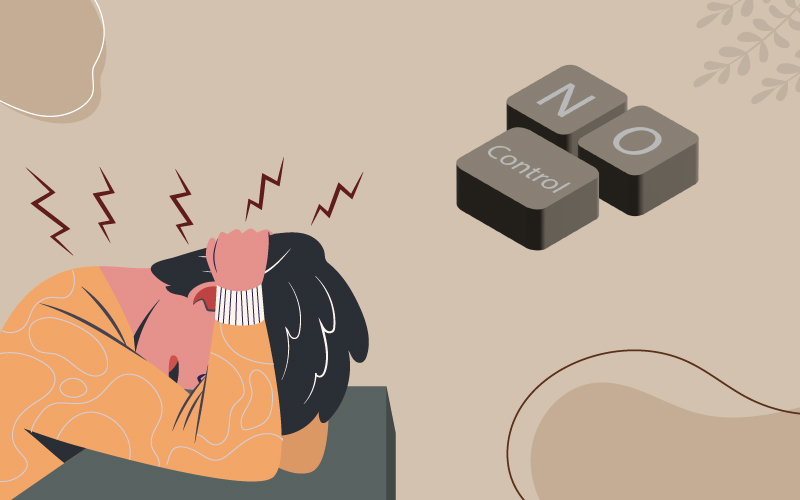Self-pleasuring or masturbating is a topic that, despite its commonality, remains surrounded by myths, misconceptions, and often, a sense of shame. From a life coach’s perspective, understanding masturbation’s psychological and emotional impacts is crucial in guiding individuals towards a healthier relationship with their sexuality.
Understanding Masturbation
Masturbation is the act of self-stimulation of the genitals, typically resulting in sexual pleasure and often climax. It is a natural and common behavior observed in both genders across all ages. Despite its prevalence, societal attitudes towards masturbation vary widely, influenced by cultural, religious, and personal beliefs. These attitudes can significantly impact how individuals perceive and experience masturbation.
The Positive Aspects of Self-Pleasuring
Self-Exploration and Body Awareness
Self-pleasuring allows individuals to explore their bodies, understand their sexual preferences, and learn what brings them pleasure. This self-exploration fosters a deeper connection with one’s body, promoting body positivity and self-acceptance. Understanding one’s sexual response can enhance sexual confidence and improve sexual relationships with partners.
Stress Relief
Engaging in masturbation can be a form of stress relief. The release of endorphins and other feel-good hormones during orgasm can help reduce stress, anxiety, and improve mood. For many, masturbation serves as a healthy outlet for releasing sexual tension and managing stress.
Improved Sleep
The hormonal changes that occur during and after masturbation, such as the release of oxytocin and prolactin, can promote relaxation and aid in better sleep. For those struggling with insomnia or restless nights, masturbation can be a natural remedy.
Sexual Health and Function
Regular masturbation is associated with various health benefits, including improved immune function, better mood, and enhanced sexual health. It can help maintain sexual function, prevent erectile dysfunction in men, and alleviate menstrual cramps in women.
The Negative Perceptions and Potential Downsides
Feelings of Loneliness and Isolation
For some individuals, especially those who might use self-pleasure as a substitute for human intimacy, it can lead to feelings of loneliness and isolation. When used as an escape from emotional pain or social interactions, it may reinforce feelings of solitude.
Guilt and Shame
Societal and cultural taboos around self-pleasuring can lead to feelings of guilt and shame. These negative emotions can be particularly strong in individuals raised in environments where masturbation is stigmatized or considered immoral. Persistent guilt and shame can impact self-esteem and mental health.
Addictive Behavior
While masturbation itself is not inherently harmful, when it becomes compulsive or interferes with daily life and responsibilities, it can be problematic. Some individuals may use self-pleasuring as a coping mechanism for stress, boredom, or emotional distress, leading to an unhealthy dependency.
Navigating Masturbation in a Healthy Way
Acceptance and Normalization
As a life coach, it’s important to help clients understand that masturbation is a normal and natural part of human sexuality. Normalizing the conversation around it can alleviate unnecessary guilt and shame. Encouraging open and honest discussions about sexual health can foster a more accepting attitude.
Mindful Masturbation
Mindfulness can play a significant role in promoting a healthy relationship with masturbation. Mindful masturbation involves being present in the moment, focusing on the sensations, and appreciating the experience without judgment. This practice can enhance self-awareness and lead to a more fulfilling sexual experience.
Balancing Self-Pleasure and Social Interactions
Encouraging clients to maintain a balance between masturbation and social interactions is crucial. While masturbation can be a healthy part of self-care, it should not replace meaningful human connections. Fostering strong social and intimate relationships can mitigate feelings of loneliness.
Setting Boundaries
For individuals who struggle with compulsive masturbation, setting healthy boundaries is essential. This might include setting specific times for self-pleasure, ensuring it doesn’t interfere with daily responsibilities, and seeking alternative coping mechanisms for stress and emotional distress.
Seeking Professional Help
If masturbation is causing significant distress or interfering with one’s quality of life, seeking professional help is important. Therapists and counselors can provide strategies to manage compulsive behaviors and address underlying emotional issues.
Personal Reflections and Growth
Masturbation, like any other aspect of sexuality, can be a journey of personal growth and self-discovery. Reflecting on one’s experiences, understanding the emotional and physical responses, and acknowledging both positive and negative feelings can lead to a more nuanced perspective.
Journaling
Encouraging clients to journal about their experiences with masturbation can provide valuable insights. Journaling can help track patterns, emotions, and triggers, offering a clearer understanding of their relationship with self-pleasure.
Self-Compassion
Practicing self-compassion is key in dealing with any feelings of guilt or shame. Reminding oneself that masturbation is a normal part of human sexuality and treating oneself with kindness can foster a healthier self-image.
Open Communication
For those in relationships, open communication with partners about masturbation can enhance intimacy and mutual understanding. Discussing boundaries, preferences, and incorporating mutual self-pleasure can strengthen the sexual relationship.
Final Thoughts
From a life coach’s perspective, self-pleasuring can make individuals feel either lonely or lovely, depending on their approach and mindset. By promoting a healthy, balanced, and mindful approach to masturbation, individuals can enjoy its benefits while mitigating any potential downsides. Encouraging open discussions, self-compassion, and professional support when needed can help individuals navigate their sexual health journey with confidence and positivity. Masturbation, when understood and embraced as a natural part of human sexuality, can be a source of joy, self-discovery, and well-being. The key lies in finding a personal balance that aligns with one’s values, needs, and lifestyle.

Leave a Reply
You must be logged in to post a comment.